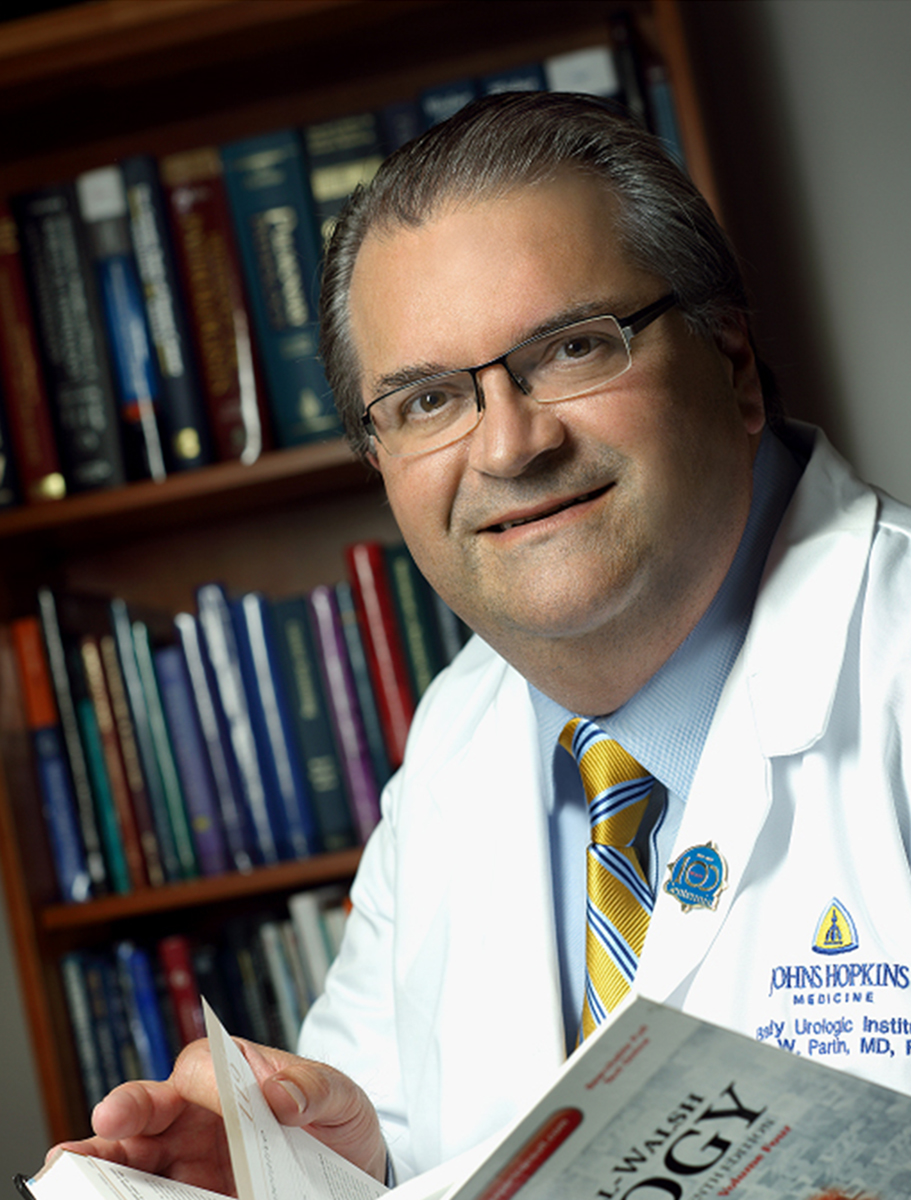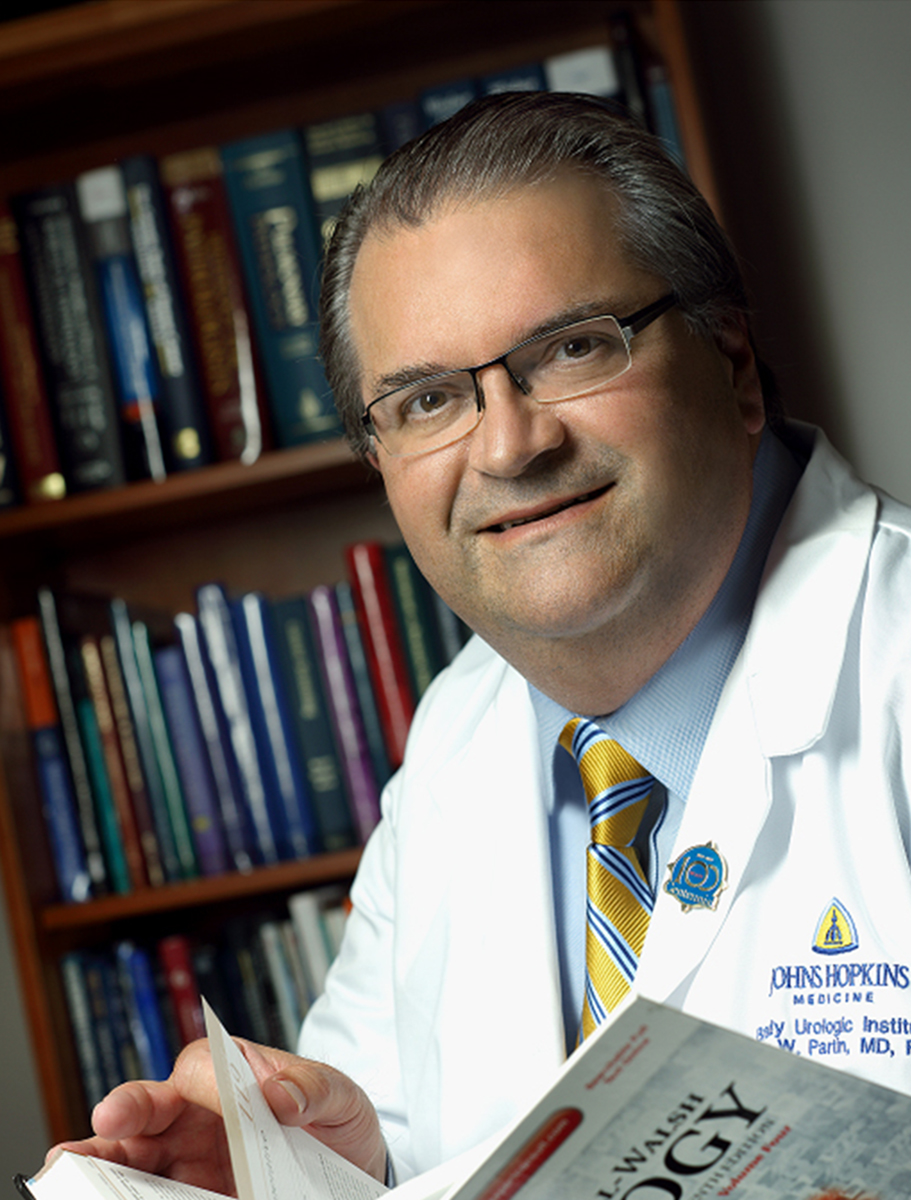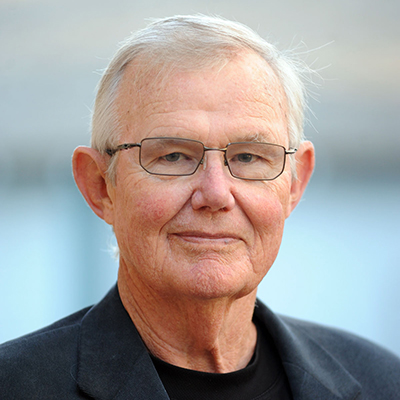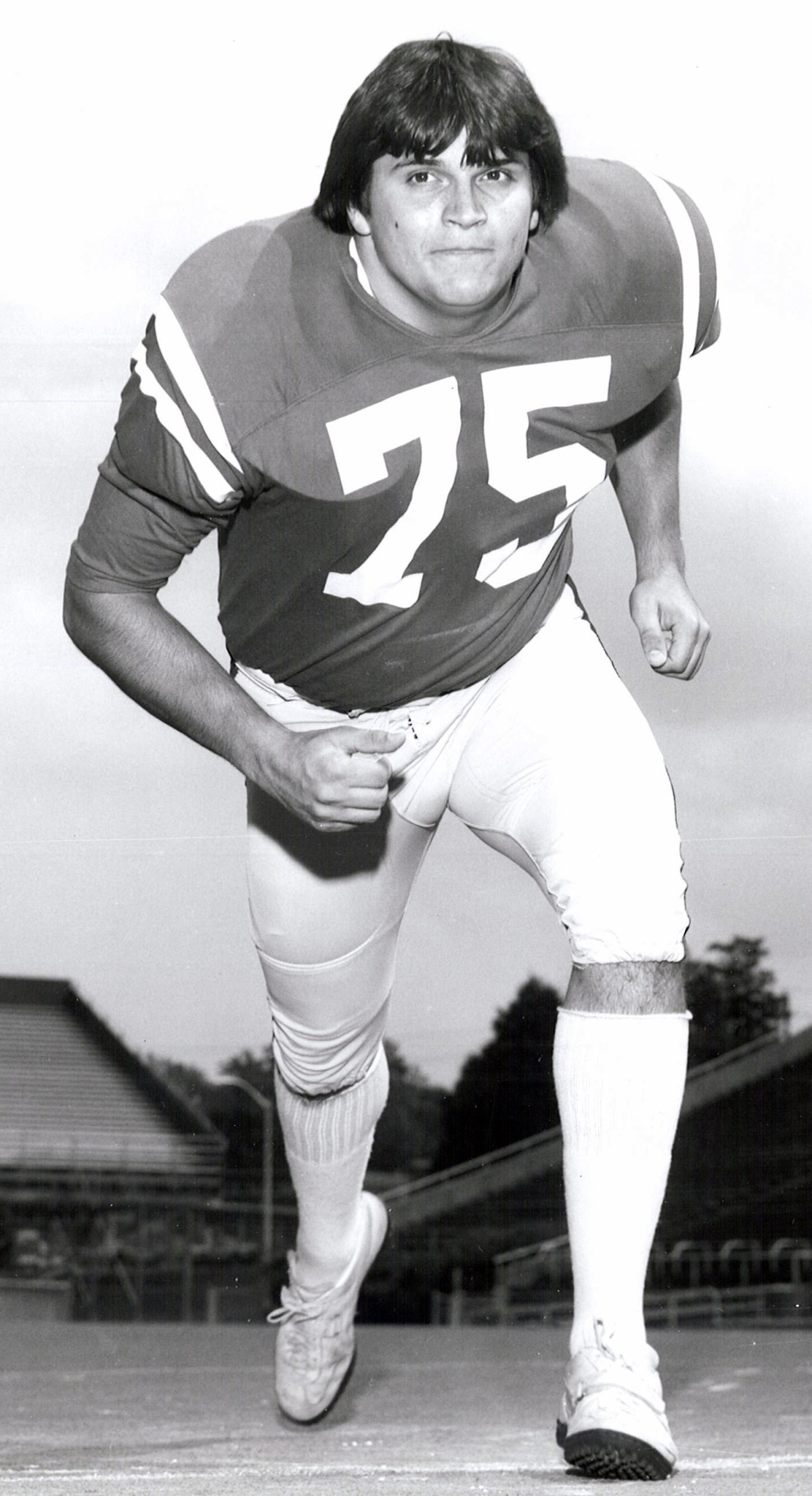Mississippi Today
Alan Partin: From Ole Miss football to a remarkable medical career


Alan Partin: From Ole Miss football to a remarkable medical career
They are called the Partin Tables, named for Dr. Alan Partin, the renowned Johns Hopkins urologist who created the ground-breaking medical reference material. Partin developed the tables when he wasn’t performing hundreds and hundreds of often life-saving prostate surgeries a year.

And you may wonder why a sports writer would write about such an obscure (if invaluable) medical reference. It is because Partin, who died on March 28 at age 62, grew up in Grenada and played college football at Ole Miss.
“Smartest damn guy I ever met,” said Madison resident Tim Bell, who was a student trainer for the Ole Miss football staff during the early 1980s when Partin played in the offensive line for the Rebels.
“Most guys played college football hoping to get to the pros,” Bell said. “Alan Partin knew he was gonna be a doctor, knew he was going to be a surgeon, knew he was going to study at Johns Hopkins. He was super, super intelligent and he was driven.”
So much for the hackneyed image of offensive linemen as dumb jocks. Partin, a chemistry and pre-med major, made straight A’s at Ole Miss. He was brilliant. He was far from alone among offensive linemen, and we’ll get to that.

Just google “Partin Tables” if you want to learn how smart Partin was. Developed in 1993, the tables are based “on thousands of nerve-sparing radical retropubic prostatectomies…”
Asked to put the Partin Tables in layman’s terms, Dr. Charles Pound, division chief of urology at University of Mississippi Medical Center (UMMC), said, “It was a big deal. It is a big deal. For many years, it was the best tool you had to help doctors and patients make decisions on prostrate treatment. It gave you the info about the stage of your disease. It is still very helpful today. I still use it.”
As it turns out, Pound studied under Partin at Johns Hopkins and they were good friends. Indeed, Pound was the best man in Partin’s second wedding.
“I met him when I was a student and he was a resident at Johns Hopkins, and then we worked together for three or four years,” Pound said. “Clearly, Alan was really, really intelligent, but I’m not so sure that his drive and determination were not his greatest assets. He would take on anything with sheer determination and nearly always succeed. He was special.”
Dr. Theodore L. Deweese, CEO of Johns Hopkins Medicine, worked closely with Partin for years and issued a statement at the time of his cohort’s death. “Throughout his career as a researcher, clinician and a leader, Alan Partin was consistently at the heart of discovery and innovation in the filed of urology, always keeping a singular focus on improving the outcomes for our patients.”
Football, Partin often said, helped prepare him for his medical career. In a 2016 interview, Partin talked about the correlation. “You think you’re running to the right, then the defense changes and now you’re going left. Everything can change in a split second…” Partin said. “As a surgeon, you have to do that non-stop. No surgery is the same.
“Everybody has anatomical variations,” he continued. “I remove men’s prostates when they have cancer. There are literally 387 well-defined maneuvers in that operation. Then you get inside a patient and notice an artery that isn’t supposed to be there is running across the area where you are operating. You have to change what you are doing. You have to adapt to that moment. That’s like coming up to the line and expecting to see one defense and they’ve shifted into another other. You still want to move the ball forward, so you have to think quickly, change up what you were doing and run the play.”

There’s one other striking similarity between playing in the offensive line and being a doctor. Put it this way: An offensive lineman is the only position in which the ultimate goal is to protect someone else.
More than half a century of experience covering the sport has led this writer to this conclusion: Offensive linemen are often not only the smartest, but also most diligent and most selfless players on the field.
Selfless might be the most important of those traits. An offensive lineman toils mostly in obscurity, noticed only when an umpire throws his flag, and the referee announces over the loudspeaker, “Holding, number 75, 10-yard penalty, repeat first down.”
Quarterbacks, running backs and wide receivers get the headlines; offensive linemen – often referred to as the Big Uglies, for goodness sake, simply pave their way. Certainly not all become nearly as successful as Dr. Alan Partin, but let’s take a quick look at some of Partin’s Ole Miss teammates. Hoppy Cole, Partin’s roommate, owns banks. Murray Whitaker became a cardiologist. David Traxler runs a highly successful technology company in North Carolina. Greg Jeffcoat became a college registrar. Bobby Dye runs a successful resource management and financial planning company. Marc Massengale is another successful financial adviser. And then, of course, there’s Partin. That’s all from one team’s offensive line. Amazing.
Cole, who lives in Ellisville, was Partin’s college roommate for three and a half years.
“Big Al is what we called him,” Cole said. “Such a great guy, such a great friend – funny, kind, thoughtful and so, so smart.”
“Big Al and I made T-shirts that said we were part of the 30-30-30 club,” Cole said.
30-30-30?
“Yeah, that meant we played when we were either 30 points ahead, 30 points behind or there were 30 seconds left,” Cole said, chuckling.
That’s an exaggeration. I covered those Ole Miss teams. They played far more more than that.
The record will show that those Ole Miss teams (1979-82) lost more games than they won.
Thankfully, far more meaningful and lasting measures of achievement exist, which don’t always get reported. And in those measures, Dr. Big Al Partin and his partners in the Ole Miss offensive line, proved smashing successes.
This article first appeared on Mississippi Today and is republished here under a Creative Commons license.
Mississippi Today
‘Trainwreck on the horizon’: The costly pains of Mississippi’s small water and sewer systems

This is the first of a two-part story.
“This state ain’t nothing but a big Jackson,” Central District Public Service Commissioner De’Keither Stamps said during a December meeting that harkened back to his time as a capital city councilman. “We got a whole statewide trainwreck that’s on the horizon.”
Over a thousand drinking water systems, most of them small, and hundreds of additional sewer systems operate in Mississippi. Nearly 60 percent of those water systems, according to the Environmental Protection Agency, have committed a violation in the last three years, and one in three sewer systems in the state have violated pollution limits in just the last year.
In 2014, a couple in DeSoto County, the wealthiest part of the state, sent a letter with photos of their yard to the Mississippi Department of Environmental Quality. Tarnishing their garden were small clumps of feces and wads of wet toilet paper stuck together.
“When having company with children playing in our backyard last summer, suddenly, water and sewage began rushing out of the back flow valve, into the flower bed, across our yard and into the backyard where the children were playing,” the Olive Branch couple wrote. “Everyone had to come inside due to the sewage rushing in our yard…This went on for several hours.”
The culprit, MDEQ later identified, was the malfunctioning collection system at the Belmor Lakes Subdivision sewage treatment facility, which serves about 200 people. The couple continued sending complaints the next four years, while the state sent repeated notices of violation to the plant’s operator. The facility allowed sewage overflows from at least 2011 to 2020, records show, and it remains out of compliance to this day.
Another facility, at the Openwood Plantation in Vicksburg, exceeded fecal coliform limits as early as 2004. A 2011 inspection noted the plant’s effluent structure “has been leaking for at least two years, still not repaired.” The next year, a neighbor complained to MDEQ about a funky smelling green liquid on their property. The agency found not only was the treatment plant responsible, but it also leaked raw sewage that flowed into a local recreational lake. Over two decades after the initial violation, the facility still regularly exceeds, by significant degrees, water pollution limits for chemicals such as E.coli, chlorine and ammonia nitrogen.
Small water and sewer systems around Mississippi have for years struggled to stay afloat because of, to some degree, the nature of being a small water or sewer system. Now, as they try to correct deficiencies during a time of growing regulations and higher costs, many cash-strapped systems are facing the hard reality of needing to raise rates for necessary services in the country’s second poorest state.


“System officials think that part of the job is to hold rates at a low level, and that doesn’t necessarily jive with what the need is,” said Bill Moody, director of the Bureau of Water Supply at the Mississippi State Department of Health.
Moody spoke anecdotally of system owners who bragged about keeping rates low, unaware of the revenue shortfall they would soon have.
A 2023 EPA report on funding needs for drinking water systems found that, over the next 20 years, Mississippi will have an $8.1 billion need. That equals $2,751 per Mississippian, the fourth largest per capita need of any state. Small systems in the state had a per capita need 26% higher than that, the report’s data shows, equalling $3,456 per person.

The United States, and especially Mississippi, suffers from what industry wonks call “fragmentation.” Compared to other countries, the U.S. has a spread out population, meaning its utilities are spread out, too. But by having so many water and sewer systems serving small pockets of people, scant infrastructure funding is spread to the point it loses spending power.
“ The problems the city of Jackson has had, for instance, is replayed over and over and over again in these smaller systems,” said MDEQ executive director Chris Wells. “ What you have is these small systems that, for one reason or other, aren’t properly functioning.”
For instance, Wells explained, a developer with no utility experience might build and operate a sewage lagoon to serve a subdivision. Sometimes the developer moves or dies and passes the reins onto the homeowners association.
“We’ve had situations where the person who built the lagoon or the treatment system literally disappears, abandons the system,” Wells said.
While consolidating small systems would help, experts say, some are so far behind that their customers’ bills will go up regardless.
!function(){“use strict”;window.addEventListener(“message”,(function(a){if(void 0!==a.data[“datawrapper-height”]){var e=document.querySelectorAll(“iframe”);for(var t in a.data[“datawrapper-height”])for(var r,i=0;r=e[i];i++)if(r.contentWindow===a.source){var d=a.data[“datawrapper-height”][t]+”px”;r.style.height=d}}}))}();
“It gets a little depressing, I don’t know what the answer is,” Greg Pierce, a water policy expert at the University of California, Los Angeles said. “Usually these systems are under-maintained. They have low rates, but they also have low quality and low reliability.”
Each year, the Health Department takes the temperature of the state’s drinking water systems. In the last two years, the agency found 83 providers that were in “poor” condition. While the median population for a water system in Mississippi is around 1,400 people, that number drops to 422 for the “poor” performing systems, about 80% of which serve under a 1,000 people.
In the small town of Utica, for instance, the Reedtown Water Association has frequent power outages and boil water notices. Stamps, the Public Service commissioner for the area, said necessary repairs would cost $4 million to $5 million, “an amount far beyond what the water association and its (1,200) customers can afford.”
One water association with just 829 customers – Cascillia, in Tallahatchie County – had 83 violations in just the last 5 years, including exceeding arsenic limits in 2023. Several other small water systems (such as the Moore Bayou Water Association in Coahoma County, or Truelight Redevelopment in Sharkey County) are considered “serious violators” by the EPA for, in part, not meeting limits on disinfectant byproducts that were set in 2006. Of the state’s 19 “serious violators,” more than half serve 1,200 or fewer people. The EPA defines a small water system as serving 3,300 people or fewer.

Smaller systems struggle nationwide. A 2018 study from researchers at the University of California, Irvine and Columbia University found that systems in rural areas around the country see “substantially” more violations than those in urban areas.
Wells, of MDEQ – which oversees sewer compliance – said it’s a challenge motivating struggling systems to meet permit limits. The state can technically take over a system, but MDEQ doesn’t have the resources to do so, and levying large fines can be counterproductive because ratepayers ultimately have to make up the difference.


“Every dollar that we take in penalties is one less dollar that the community has to spend toward the upgrades that they need to make,” he said.
Wells described that, for some repeat offenders, sending them violation notices is like “trying to get blood out of a turnip.” While MDEQ works with systems to correct deficiencies, he said, sometimes the best answer is a third-party utility coming in to save the day.
The American Society of Civil Engineers’ 2024 “Infrastructure Report Card” estimated that Mississippi, between all its water and sewer systems, needed $9.4 billion in investments over the next 20 years.
“The capacity of drinking water systems in the state is mediocre,” the report says, adding that “wet weather conditions, inconsistent maintenance, and a lack of rehabilitation pose extreme threats to the state’s wastewater infrastructure.”

Between the historic amounts of federal funding from the American Rescue Plan Act and the Infrastructure Investment and Jobs Act, Mississippi received roughly $1.2 billion for water and wastewater improvements, or just 13% of the state’s projected need.
Especially with large expenses looming to meet the new national standards for PFAs, some small systems are looking to consolidate to ease financial headaches. The Oxford Eagle reported last year, for instance, that the Punkin Water Association would soon join the city of Oxford’s service area after years of water quality issues.
But given the spacial challenges of connecting far apart systems – especially in Mississippi, which, according to Census data, has the fourth most rural population of any state – some say there are limits to how much water providers can actually unify.

“When it comes to the physical pipes in the ground, you can’t move them,” said Mildred Warner, a professor of city and regional planning at Cornell University, explaining that many systems can only consolidate in terms of management.
Mississippi is experimenting with consolidating management for some of its small, privately owned water and sewer systems. In 2021, a company called Great River began buying struggling systems around the state. A subsidiary of the national firm Central States Water Resources, the company focuses on struggling, poorly financed systems that most large utility firms wouldn’t touch. Now operating in 11 states, the company has access to more resources than what a small operator would, and can reduce overall costs by spreading them out throughout its service area.
In Mississippi, part of the PSC’s job is to make sure private utilities that have a monopoly over a given service area, like Great River, only charge customers for what their services are worth, plus enough profit to stay in business. Given the challenges of some small systems in the state, the PSC welcomed the company’s help. But Great River, as is common when a large private utility takes over, quickly imposed steep rate increases to fund its repairs.
As Great River’s ratepayers plead with the PSC to soften the financial blow, the condition of some Mississippi water and sewer providers suggest those basic services will have to cost much more than they used to, especially for customers of small systems.
Part two of this story will further explore the Great River’s impact on ratepayers, and what the future holds for small water and sewer systems struggling to stay afloat.
This article first appeared on Mississippi Today and is republished here under a Creative Commons Attribution-NoDerivatives 4.0 International License.![]()
Mississippi Today
On this day in 1939, Billie Holiday recorded ‘Strange Fruit’

April 20, 1939

Legendary jazz singer Billie Holiday stepped into a Fifth Avenue studio and recorded “Strange Fruit,” a song written by Jewish civil rights activist Abel Meeropol, a high school English teacher upset about the lynchings of Black Americans — more than 6,400 between 1865 and 1950.
Meeropol and his wife had adopted the sons of Julius and Ethel Rosenberg, who were orphaned after their parents’ executions for espionage.
Holiday was drawn to the song, which reminded her of her father, who died when a hospital refused to treat him because he was Black. Weeks earlier, she had sung it for the first time at the Café Society in New York City. When she finished, she didn’t hear a sound.
“Then a lone person began to clap nervously,” she wrote in her memoir. “Then suddenly everybody was clapping.”
The song sold more than a million copies, and jazz writer Leonard Feather called it “the first significant protest in words and music, the first unmuted cry against racism.”
After her 1959 death, both she and the song went into the Grammy Hall of Fame, Time magazine called “Strange Fruit” the song of the century, and the British music publication Q included it among “10 songs that actually changed the world.”
David Margolick traces the tune’s journey through history in his book, “Strange Fruit: Billie Holiday and the Biography of a Song.” Andra Day won a Golden Globe for her portrayal of Holiday in the film, “The United States vs. Billie Holiday.”
This article first appeared on Mississippi Today and is republished here under a Creative Commons Attribution-NoDerivatives 4.0 International License.![]()
Mississippi Today
Mississippians are asked to vote more often than people in most other states

Not long after many Mississippi families celebrate Easter, they will be returning to the polls to vote in municipal party runoff elections.
The party runoff is April 22.
A year does not pass when there is not a significant election in the state. Mississippians have the opportunity to go to the polls more than voters in most — if not all — states.
In Mississippi, do not worry if your candidate loses because odds are it will not be long before you get to pick another candidate and vote in another election.
Mississippians go to the polls so much because it is one of only five states nationwide where the elections for governor and other statewide and local offices are held in odd years. In Mississippi, Kentucky and Louisiana, the election for governor and other statewide posts are held the year after the federal midterm elections. For those who might be confused by all the election lingo, the federal midterms are the elections held two years after the presidential election. All 435 members of the U.S. House and one-third of the membership of the U.S. Senate are up for election during every midterm. In Mississippi, there also are important judicial elections that coincide with the federal midterms.
Then the following year after the midterms, Mississippians are asked to go back to the polls to elect a governor, the seven other statewide offices and various other local and district posts.
Two states — Virginia and New Jersey — are electing governors and other state and local officials this year, the year after the presidential election.
The elections in New Jersey and Virginia are normally viewed as a bellwether of how the incumbent president is doing since they are the first statewide elections after the presidential election that was held the previous year. The elections in Virginia and New Jersey, for example, were viewed as a bad omen in 2021 for then-President Joe Biden and the Democrats since the Republican in the swing state of Virginia won the Governor’s Mansion and the Democrats won a closer-than-expected election for governor in the blue state of New Jersey.
With the exception of Mississippi, Louisiana, Kentucky, Virginia and New Jersey, all other states elect most of their state officials such as governor, legislators and local officials during even years — either to coincide with the federal midterms or the presidential elections.
And in Mississippi, to ensure that the democratic process is never too far out of sight and mind, most of the state’s roughly 300 municipalities hold elections in the other odd year of the four-year election cycle — this year.
The municipal election impacts many though not all Mississippians. Country dwellers will have no reason to go to the polls this year except for a few special elections. But in most Mississippi municipalities, the offices for mayor and city council/board of aldermen are up for election this year.
Jackson, the state’s largest and capital city, has perhaps the most high profile runoff election in which state Sen. John Horhn is challenging incumbent Mayor Chokwe Antar Lumumba in the Democratic primary.
Mississippi has been electing its governors in odd years for a long time. The 1890 Mississippi Constitution set the election for governor for 1895 and “every four years thereafter.”
There is an argument that the constant elections in Mississippi wears out voters, creating apathy resulting in lower voter turnout compared to some other states.
Turnout in presidential elections is normally lower in Mississippi than the nation as a whole. In 2024, despite the strong support for Republican Donald Trump in the state, 57.5% of registered voters went to the polls in Mississippi compared to the national average of 64%, according to the United States Elections Project.
In addition, Mississippi Today political reporter Taylor Vance theorizes that the odd year elections for state and local officials prolonged the political control for Mississippi Democrats. By 1948, Mississippians had started to vote for a candidate other than the Democrat for president. Mississippians began to vote for other candidates — first third party candidates and then Republicans — because of the national Democratic Party’s support of civil rights.
But because state elections were in odd years, it was easier for Mississippi Democrats to distance themselves from the national Democrats who were not on the ballot and win in state and local races.
In the modern Mississippi political environment, though, Republicans win most years — odd or even, state or federal elections. But Democrats will fare better this year in municipal elections than they do in most other contests in Mississippi, where the elections come fast and often.
This article first appeared on Mississippi Today and is republished here under a Creative Commons Attribution-NoDerivatives 4.0 International License.
-

 News from the South - Alabama News Feed6 days ago
News from the South - Alabama News Feed6 days agoFoley man wins Race to the Finish as Kyle Larson gets first win of 2025 Xfinity Series at Bristol
-

 News from the South - Alabama News Feed7 days ago
News from the South - Alabama News Feed7 days agoFederal appeals court upholds ruling against Alabama panhandling laws
-

 News from the South - North Carolina News Feed5 days ago
News from the South - North Carolina News Feed5 days agoFDA warns about fake Ozempic, how to spot it
-

 News from the South - Missouri News Feed3 days ago
News from the South - Missouri News Feed3 days agoDrivers brace for upcoming I-70 construction, slowdowns
-

 News from the South - Virginia News Feed5 days ago
News from the South - Virginia News Feed5 days agoLieutenant governor race heats up with early fundraising surge | Virginia
-

 News from the South - Georgia News Feed7 days ago
News from the South - Georgia News Feed7 days agoWall Street poised to add to last week’s gains when markets open Monday
-

 News from the South - Missouri News Feed5 days ago
News from the South - Missouri News Feed5 days agoAbandoned property causing issues in Pine Lawn, neighbor demands action
-

 News from the South - West Virginia News Feed7 days ago
News from the South - West Virginia News Feed7 days agoHeart disease survivor spends 15th birthday raising money for American Heart Association
















































